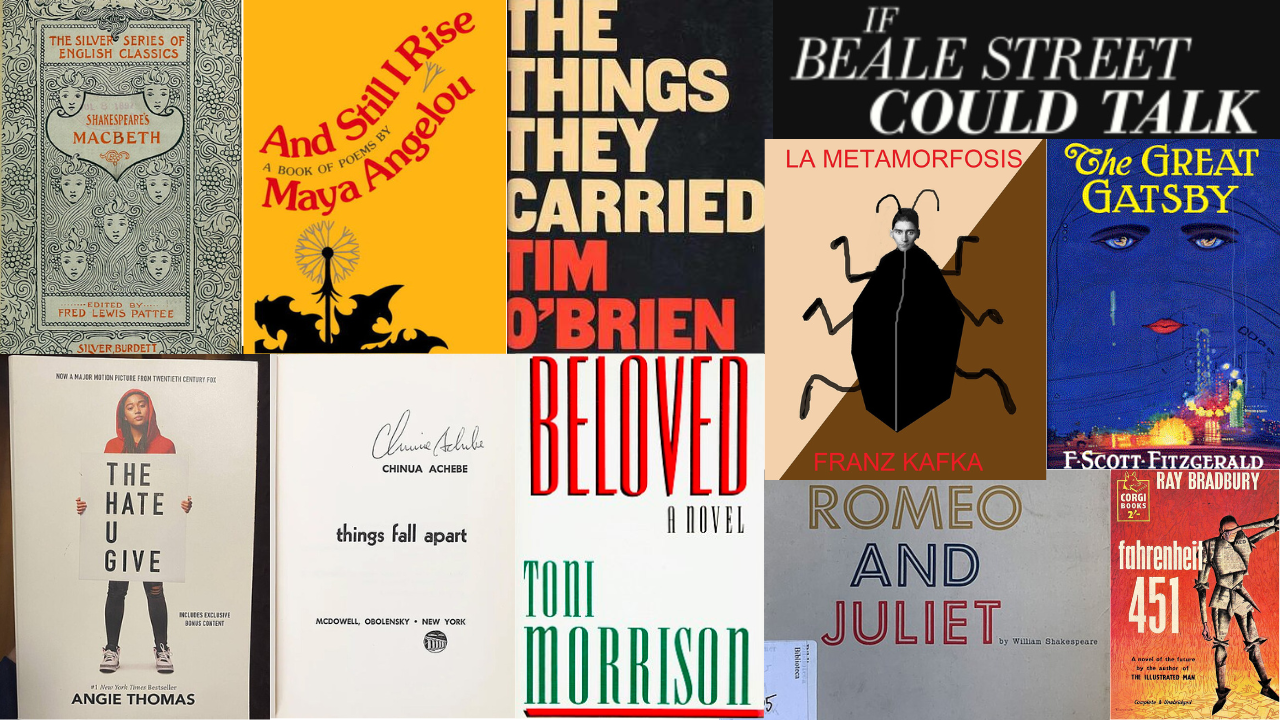Students and teachers both say they want students to see themselves reflected in the books they read in school. They also want students to read about people who are different from them.
Junior McKenna Kelsall believes that diversity in the authors and characters in the books that are assigned is important because of how much time students spend in school.
“Diversity is important everywhere, but especially in schools because we spend so much of our time at school. What we learn here can really shape or help shape our worldview and our perspectives when we go out into the world and beyond high school,” said Kelsall. “I think [diversity is] important because it can be fundamental in developing our understanding about world issues as well as compassion for people with different backgrounds and situations. It’s easy to be in a bubble in high school or in your city … and it’s good to be exposed to different people’s experiences and where they’re coming from.”
English teachers say they have some freedom to choose books they teach, so they have the ability to impact the diversity of books they assign. Joel Jablon, who is teaching sophomore English and history this year, says he is asked to teach some books by the English department while he chooses others. This year the sophomore English teachers decided to teach “Fahrenheit 451” by Ray Bradbury and “The Truman Show” by Stephen Davis. Jablon chose to teach “Beloved,” by Toni Morrison, excerpts from “Braiding Sweetgrass,” by Robin Wall Kimmerer and many other works of literature. These books add to the diversity of books students are assigned. Jablon says teachers also come together and collectively decide which books to teach based on factors like the availability of the books in the bookroom.
Junior Riley DeBose shares how having books that speak to different perspectives has impacted her personally.
“I believe that when we are reading books that speak to different groups, I feel seen, like in English classes where we’ve read books like ‘The Hate U Give’ or ‘If Beale Street Could Talk.’ I think I’ve definitely felt seen and I felt more passionate about writing things surrounding books [where] [I] can relate [them] to my life back at home and even being at school,” said DeBose.
Junior Julia Lim says that the lack of representation in the books assigned has impacted her.
“…In the literature we read in English class, I often don’t see myself or my culture represented a lot. I feel like there is usually an emphasis on Black American perspectives or white perspectives in the authors we read … I would really appreciate a bit more perspectives from different cultures like Asia,” said Lim.
Junior Aman Shankar shared what changes he would like to see in which books are assigned to read.
“I think because I’m South Asian, I’m from India, … what I would want to see [is] implementing more diverse characters, not just for the sake of them being diverse, but [so that] we get to learn about the culture that they come from and their background,” Shankar said. “I think that in English classes specifically, it would be beneficial for us to learn more about different cultures, so we get different perspectives.”
Jablon agrees with the importance of learning about different perspectives. In his experience in school, he says he was not assigned books written by authors from different backgrounds and the characters in the books he was assigned were mostly white.
“…For me as a teacher when I went into teaching, what I really wanted [to] ensure [was] that students didn’t have my experience—that in their twenties they didn’t suddenly go ‘wait I didn’t know this [other] reality’… For me, it’s both teaching my students stories that they might otherwise not know, but also empowering them. I want to teach my students about the history of activism and standing up,” said Jablon.
According to The New York Times, President Trump has sought to remove DEI activity in institutions. Several executive orders have been signed by Trump in an attempt to ban diversity practices in the federal government, educational institutions and private companies.
“…It feels like a privilege to be able to go to a school [that does] not [censor] books. It shouldn’t feel like that though, every student should be able to have access to books at their own school. It [has] definitely been a topic for years,” said Kelsall. “A real sense of concern for I think many students and teachers [is] that we’re going down this path of regression and censorship of real topics. … I think it is concerning and especially with the inauguration of a president that’s very okay with a lot of censorship. … I do have hope that people, even in those situations [can] always find ways to get information and get around censorship at school.”


